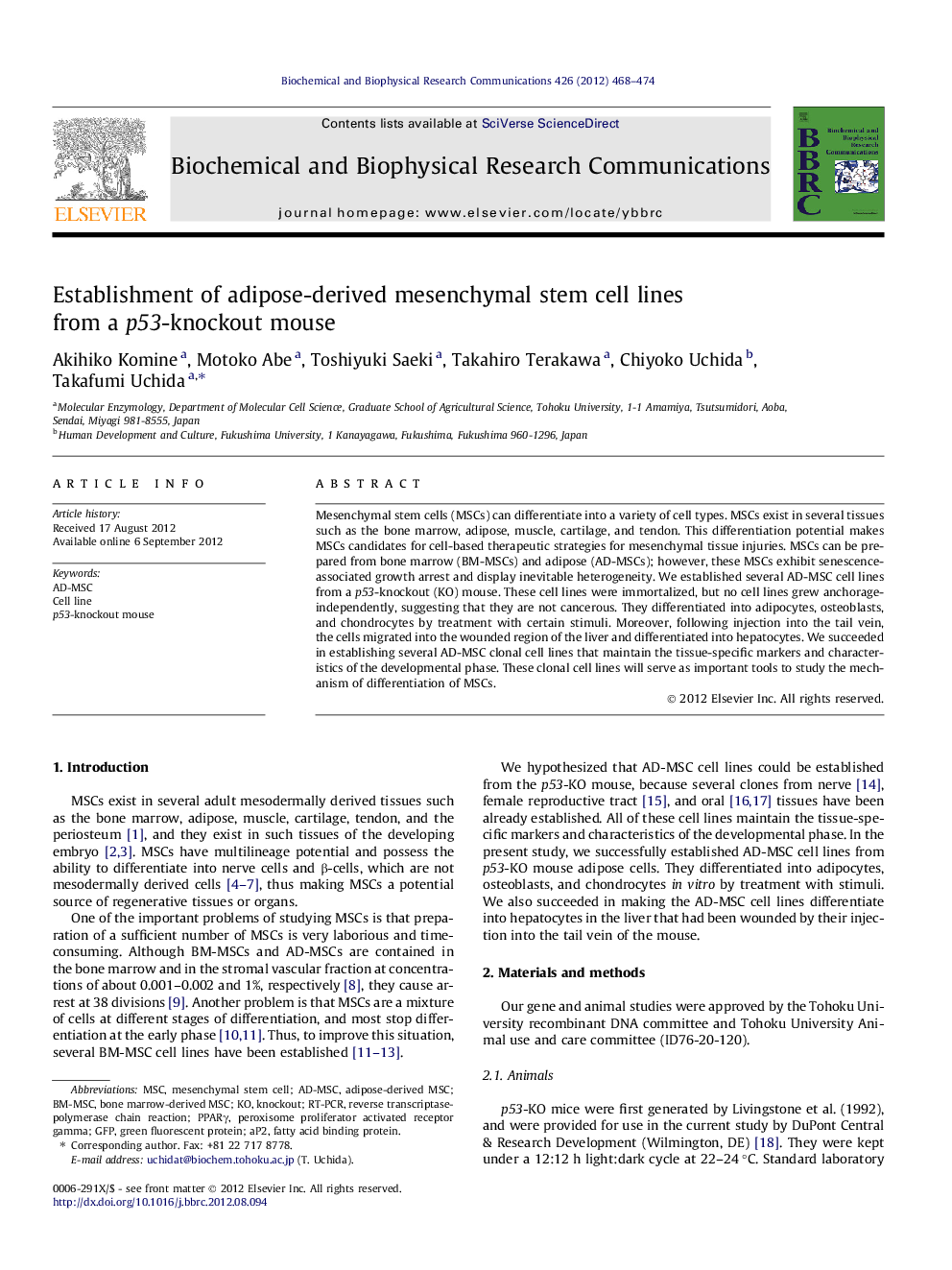| Article ID | Journal | Published Year | Pages | File Type |
|---|---|---|---|---|
| 1929264 | Biochemical and Biophysical Research Communications | 2012 | 7 Pages |
Mesenchymal stem cells (MSCs) can differentiate into a variety of cell types. MSCs exist in several tissues such as the bone marrow, adipose, muscle, cartilage, and tendon. This differentiation potential makes MSCs candidates for cell-based therapeutic strategies for mesenchymal tissue injuries. MSCs can be prepared from bone marrow (BM-MSCs) and adipose (AD-MSCs); however, these MSCs exhibit senescence-associated growth arrest and display inevitable heterogeneity. We established several AD-MSC cell lines from a p53-knockout (KO) mouse. These cell lines were immortalized, but no cell lines grew anchorage-independently, suggesting that they are not cancerous. They differentiated into adipocytes, osteoblasts, and chondrocytes by treatment with certain stimuli. Moreover, following injection into the tail vein, the cells migrated into the wounded region of the liver and differentiated into hepatocytes. We succeeded in establishing several AD-MSC clonal cell lines that maintain the tissue-specific markers and characteristics of the developmental phase. These clonal cell lines will serve as important tools to study the mechanism of differentiation of MSCs.
► We succeeded in establishing clonal AD-MSC lines from p53-knockout mouse. ► They differentiated into adipocytes, osteoblasts, and chondrocytes. ► These cells migrated into the wounded liver and differentiated into hepatocytes. ► These lines are useful for analysis of the mechanism of AD-MSC differentiation.
